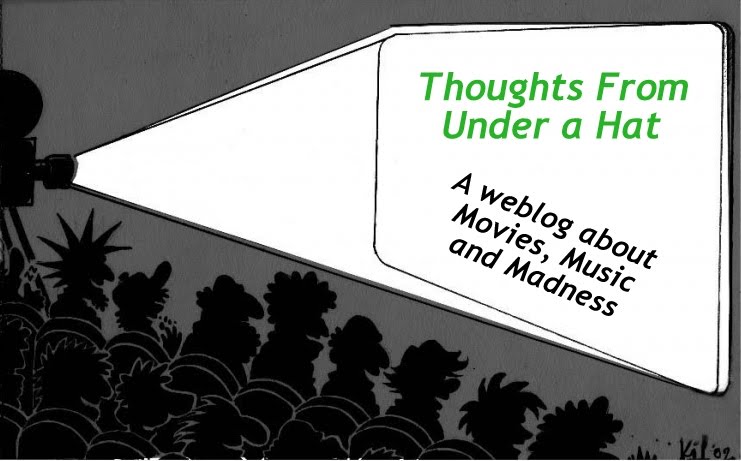This difference is also present in the cinema (or in any other artform, for that matter). Sometimes it manifests in silly little things, like the fact that bartenders are always introduced in movies while drying a glass with a rag, but it also shows in bigger things. Like how romance in movies seems to follow completely different roles then that in real life: people will fall in love with somebody in the space of minutes, and then yearn for them for years after that. Or how the first night for a couple is always a perfect and means that they will stay together forever. But of course, there are filmmakers who have set out to erase these discrepancies. Robert Altman shows people in large groups, instead of socially isolated individuals. Kryztof Kieslowki's Trois Couleurs make it clear what liberty, equality and fraternity truly mean in the cruel outside world. And as far as romance is concerned, there is Richard Linklaters Before Sunrise: a film which is so honest about what it means to fall in love that 99 percent of it's running time is spent with the characters unsure about their actual feelings.
Celine (Julie Delphy) is sitting in the train. Next to her, a middle-aged German couple is arguing loudly. She gets annoyed, decides to move, and sits down across Jesse (Ethan Hawk). The tone is set: even before the characters are even introduced to each other, it's made clear that love isn't all sunshine and lollipops. The characters strike up a conversation. She is on her way to Paris from a family visit in Budapest, he is making his way to Vienna to catch a flight back to the US. They seem to get along. When they get to Vienna, they say their goodbyes and he gets off. Then he gets back on, sits down next to her and tells her he enjoys talking to her and doesn't want to miss the opportunity to get to know her. After all, won't a moment like this haunt you on your deathbed when you let it slip? She, being a romantic, seizes the moment and disembarks with him. What follows is a night in Vienna filled with bonding, love and talking. Lots of talking.
What makes Linklaters films so unique is that they embrace the flaws and irregularity of being human, instead of ironing over them. He does this mostly through the dialogues in his film, which are almost always co-written with the actors. Hearing these people talk is incredibly engrossing, and it take you away farther then most films do with exotic location shooting. Yet the way these characters talk isn't the way most people talk in the movies, where one person says something and the other responds. People interrupt each other, ask strange questions and drop subject because they don't like talking about them. Many movies use dialogue to advance a plot. Linklater uses it to find his characters, and to let them find each other. There is always a hidden motive, a little something unsaid in between the lines of Jesse and Celine. Who can ever express exactly what they mean, after all?
Although it is in many way its opposite, Before Sunrise reminded me of Trois Couleurs: Blue. While Blue is a visual movie which deals with mourning and Sunrise is a talkie about blooming love, both dare to take a step back and truly examine life at a certain point. And both are movies in which very little actually happens, but which still move you more then you can really explain. The only truly crucial difference is that Blue is a meditation on a life already lived, while the characters in Sunrise still have their entire life before them. They are off to a great start.
Alias
There is only one poet who can explain the feel of this movie, and that poet is Bob Dylan. I never expected I'd ever use this song, but here it's the only appropriate choice.
Untitled from Max Urai on Vimeo.



No comments:
Post a Comment